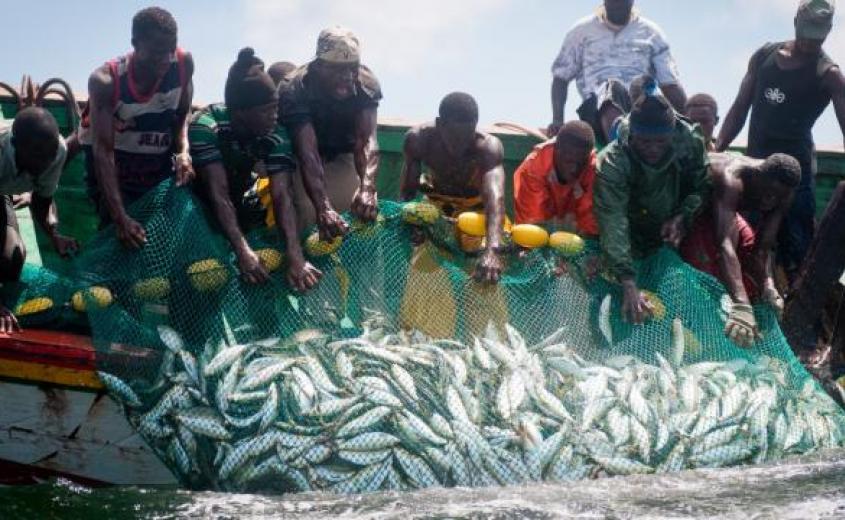Ghana; Fisheries sector wage war against illegal, unreported and unregulated IUU fishing.
Submitted by Jessica Ahedor on Wed, 05/26/2021 - 17:08


Ghana’s ministry of fisheries and aquaculture is waging war against illegalities on the country’s territorial waters after a successful implementation of its two closed seasons in 2019 to replenish the country’s fish stock as part of measures to control illegal, unreported and unregulated (IUU) fishing. Elizabeth Afoley-Quaye the minister of fisheries and aquaculture has stated that the decision to closed the country’s waters was reached after an uncover of how foreign trawlers are exploiting the country’s terrain, as a result, denying the country of its needed tax revenues that can stimulate economic growth and aid in poverty reduction.
Speaking at the maiden edition of ‘the result fair’ of the country, the sector minister acknowledged that although the stride made so far is minimal, it is expected that with continuous efforts and the measure to check illegal activities on the waters, Ghana will surmount the challenge.
Early 2019, Scientists have warned that Ghana’s Fish stock could be destroyed by 2020 as illegal, unreported and unregulated (IUU)foreign fishing trawlers continue to wreak havoc on the country’s waters. The report published by the Environmental Justice Foundation (EJF) after its assessment on the country’s territorial deep oceans recommends a stringent action be taken to curtail the menace.
The EJF’s Executive Director, Steve Trent says the practice is gradually collapsing Ghana’s staple fish stock as – small pelagic, fish such as sardines; a crucial protein in the local diet is being caught.
These illegal acts include the Japanese illegal fishing act on Ghana’s waters dubbed “Saiko which is facilitated precisely to operate undercover. Other mediums are the use of dynamites, and dichloro-diphenyl- trichloroethane DDT for fishing.
Reacting to the development, Godfrey Tsibu, the Deputy Director of the Fisheries Commission, says fishing vessels are licensed based on the sort of fish they catch. But these vessels deliberately fish different types of fishes which the law requires they must be discharged back into the ocean unharmed to replenish stock. “The situation is best described as criminality”. However, the country is putting in measures to arrest and prosecute perpetrators of these acts on the high seas causing financial loss to the state; he said.
Fisheries economist, with the United Nations at the University and University of Ghana, Prof. Wisdom Akpalu, said their survey reveals the demand for local fishers increased as some vessels made it a business to deliberately catch these fish, freeze them and later sell to local fishermen on the high seas–which is illegal and by extension denies the country revenues it would have made on those sales had the transactions been supervised by tax authorities. It is, however, incumbent on the state to use the various recommendations and strategies to address the situation going forward, he added.
Meanwhile, more than 90% of Ghana’s industrial trawl fleet is linked to Chinese owners, who depend on Ghanaian “front” companies to bypass national laws forbidding their operation, according to the EJF denying the country of its profits to the tune of approximately 100,000 tonnes of fish in 2017, worth $50m (£40m) when sold at sea and up to $81m when sold at port.


